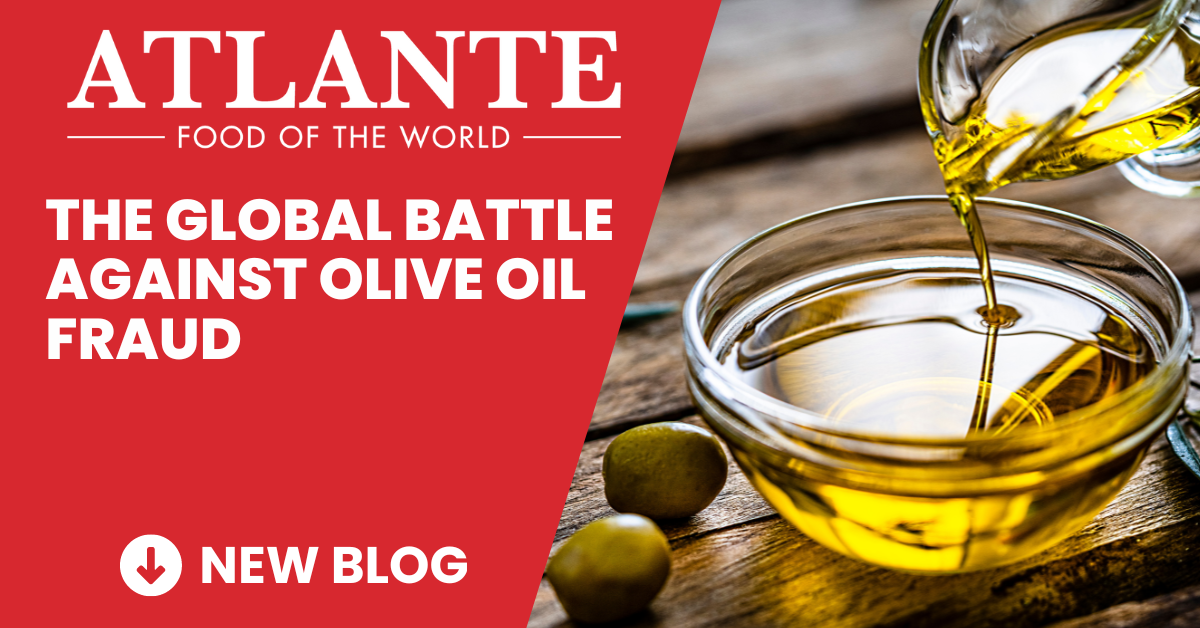Navigating the Olive Oil Market: Key Insights for FMCG Buyers
With global commodity markets witnessing unprecedented fluctuations, it's essential for Fast-Moving...
Thank you for visiting us!
This website does not completely support on Internet Explorer. Please use another browser.
Apologies for inconvenience

Extra virgin olive oil, a cornerstone of Mediterranean cuisine and a symbol of health, is increasingly under threat from fraudsters. Italy, one of the world’s top three producers of extra virgin olive oil, faces a significant challenge as the demand for this precious liquid gold rises.
Extra virgin olive oil, a cornerstone of Mediterranean cuisine and a symbol of health, is increasingly under threat from fraudsters. Italy, one of the world’s top three producers of extra virgin olive oil, faces a significant challenge as the demand for this precious liquid gold rises. While olive oil fraud isn't new, the scale and sophistication of recent cases have raised concerns across Europe. Fraud affects not only the integrity of this beloved product but also the livelihoods of farmers, the transparency of sellers, and the trust of consumers. With prices surging and fraud at an all-time high, it’s crucial to understand the mechanisms behind this fraudulent activity and what steps can be taken to protect the authenticity of Italian extra virgin olive oil.
Why Is Extra Virgin Olive Oil a Target for Fraud?
Italian extra virgin olive oil is prized for its superior taste, quality, and health benefits, making it one of the most sought-after products globally. According to the International Olive Council, the price of extra virgin olive oil has skyrocketed in recent years, reaching approximately €9-10/kg due to factors such as increased demand, climate change, and production costs. This high value, coupled with relatively limited production quantities, makes it an attractive target for fraudsters who can reap substantial profits by selling adulterated or mislabelled oil at lower prices.
The Guardian recently reported a 37% rise in olive oil fraud cases across the European Union in the past two years, a reflection of the growing scale of this illicit activity. From tampering and mislabelling to passing off lower-quality oils as high-grade extra virgin olive oil, the forms of fraud are numerous and increasingly sophisticated.

Understanding Adulteration: Intentional vs. Unintentional
It’s important to distinguish between intentional and unintentional adulteration. Unintentional adulteration occurs when oils lose their "extra virgin" classification due to poor handling, transportation, or storage. In contrast, intentional adulteration is a deliberate act, where oils of inferior quality—often seed oils or other types of olive oil—are mixed with genuine extra virgin olive oil or falsely labelled as such.
A report by FoodNavigator highlighted a case in Italy where authorities seized over 1.7 million litres of counterfeit olive oil, valued at €10 million. In this instance, lampante (low-quality) oil was deodorized and falsely marketed as extra virgin olive oil, highlighting the level of sophistication fraudsters are capable of.
Fraud in Two Key Forms
Olive oil fraud generally occurs through two primary channels:
A recent investigation uncovered that up to 50% of oils sold as extra virgin olive oil do not meet the necessary standards upon analysis, yet they are still sold at premium prices. These findings illustrate the widespread nature of olive oil fraud and the potential for consumers to be misled when purchasing this popular product.
Advances in Detection: A Game of Cat and Mouse
The fight against olive oil fraud has seen significant advances in recent years, with sophisticated testing methods now available to detect many forms of adulteration. However, the same technological advancements that help authorities catch fraudsters are also used by those committing the fraud to bypass detection.
In Spain, 24 people were arrested in 2024 for their involvement in an olive oil fraud scheme that saw 50,000 litres of adulterated oil labelled as extra virgin olive oil. Such cases highlight the ongoing challenge of detecting more refined adulteration practices that can evade traditional testing methods.
Despite these challenges, traceability systems are becoming crucial in safeguarding the olive oil supply chain. The Independent notes that in recent years, authorities have been leveraging new technologies like blockchain to track olive oil from the point of harvest to the point of sale, ensuring transparency and authenticity .

Consumer Protection
Consumers can protect themselves to ensure they are purchasing authentic extra virgin olive oil:
Our Commitment to Quality
At Atlante we take extra virgin olive oil fraud seriously. To ensure the authenticity of our products, we implement rigorous quality controls, including:
We are committed to providing our customers with authentic, high-quality extra virgin olive oil that they can trust.

Conclusion
Extra virgin olive oil fraud is an evolving challenge that affects both consumers and producers. However, with increased awareness, technological advancements in detection, and stringent quality controls, we can protect the authenticity and integrity of this precious product. Consumers can play their part by making informed purchasing decisions and supporting brands that prioritize transparency and quality.
By staying vigilant and informed, we can all enjoy the rich, authentic taste of true extra virgin olive oil—just as nature intended.

Get in touch with us today to discuss your oil needs - whatever your requirements for type and size of oil, we can help.
With global commodity markets witnessing unprecedented fluctuations, it's essential for Fast-Moving...
The UK government is accused of 'failing to understand' the needs of the food sector due to the...
UK Consumers are choosing own-brand products to try and manage their ever-increasing grocery bills...